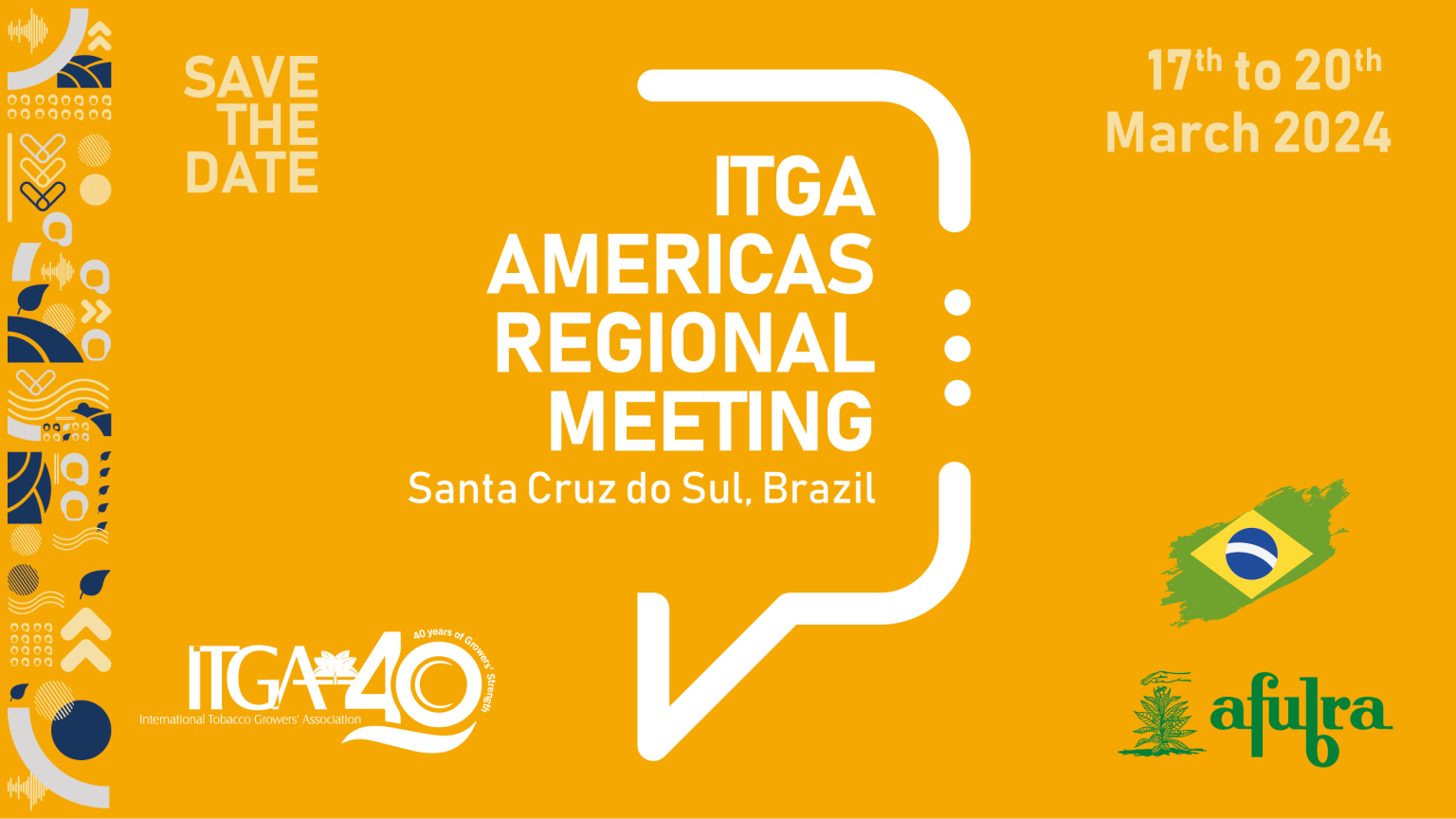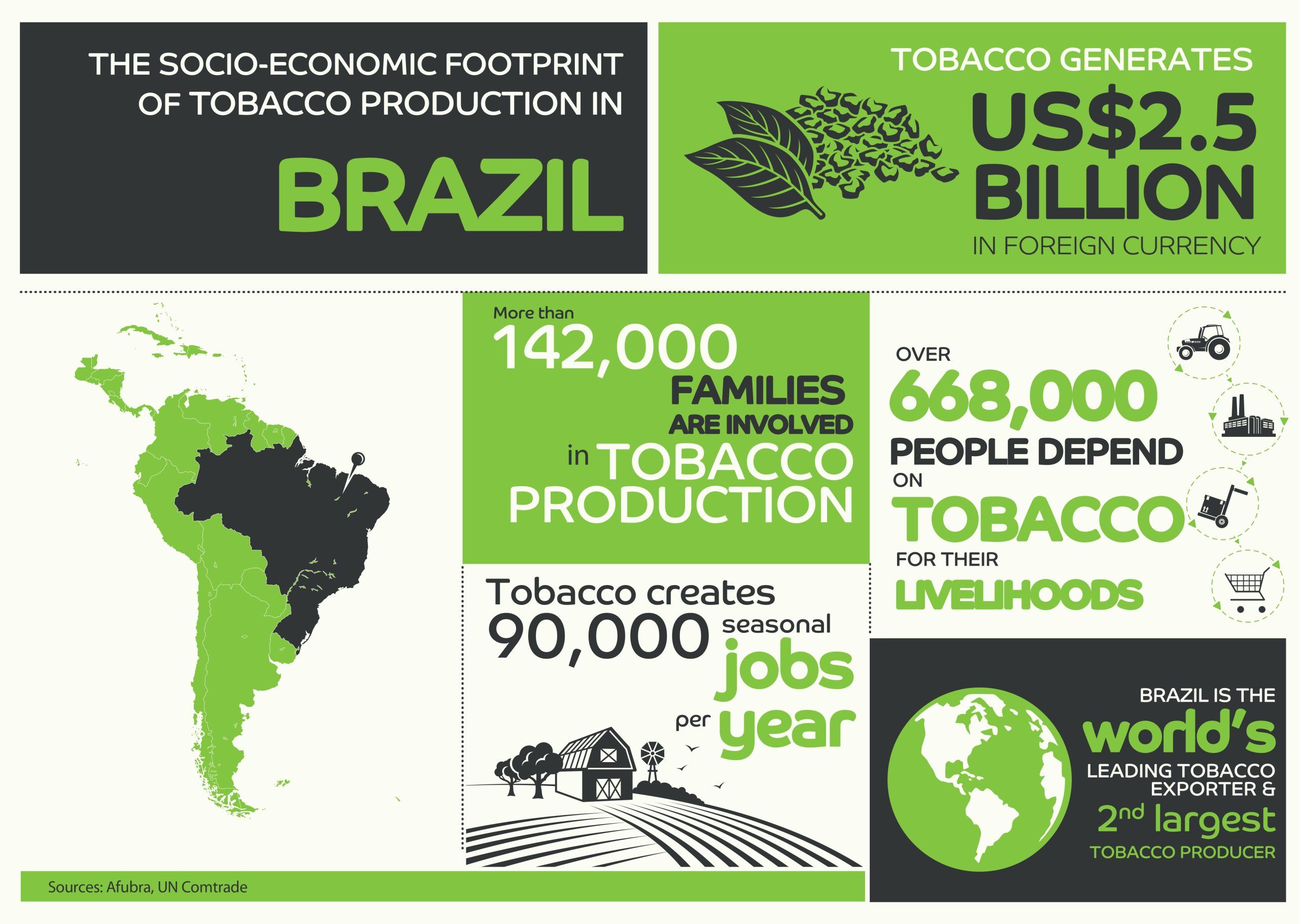
Tobacco growers’ associations from Argentina, Brazil and the United States took part in the meeting hosted by Afubra, with a high level of participation from different entities in the tobacco supply chain
March 2024 - The 2024 Americas Regional Meeting, organized by the International Tobacco Growers’ Association (ITGA), brought together representatives from member countries on Monday, 18 March, in Santa Cruz do Sul (RS). The repercussions of the 10th Conference of the Parties (COP) to the Framework Convention on Tobacco Control (FCTC), held from 5 to 10 February in Panama, were the subject of the opening of the event, led by ITGA’s President José Javier Aranda.
“I want us to focus our attention on COP10. During the week, the efforts made by tobacco growing countries such as Brazil, Panama, El Salvador, Honduras, Colombia and Nicaragua have been very clear, and demonstrated the high level of commitment that has been made. I was able to understand the extent to which representatives of the supply chain are committed to defending the sector, rowing against a discriminatory current that has slandered and harassed them for almost 20 years. And the saddest thing is that this anti-tobacco pressure comes from the official position of the Brazilian government in the discussions that have taken place at different COPs. The Brazilian government is showing absolute indifference to a sector that represents thousands of people. This is why I ask the government not to ignore this important production chain, considering that Brazil is an example to the world in terms of good social, environmental and production practices,” said José Javier Aranda, President of ITGA, in his opening speech.
“Faced with a lack of support and recognition, we need to unite even more. There is no such thing as an isolated tobacco sector and the union between producers and companies is very important”, reinforced Marcílio Drescher, President of the meeting’s host organization, the Brazilian Tobacco Growers’ Association (Afubra).
Helena Hermany, Mayor of Santa Cruz do Sul, took part in the opening ceremony and pointed out that the discourse that reaches Brasília is different from reality. “The NGOs totally distort what tobacco means for the growers, the municipalities and the environment,” she said.
Ivan Genov, a Market Analyst at ITGA, gave details about the global scenario of the production chain, covering tobacco trends in the main markets. “Considering the world production scenario, one of the highlights is that Tanzania aims to overtake Zimbabwe to become Africa’s largest producer,” said Genov. He also called attention to a small reduction in cigarette production, while at the same time there is an increase in demand for NGPs and discussion around the disposal of such devices.
“The importance of agriculture” was the theme of the presentation given by the Chief Economist of the FARSUL System, Antônio da Luz. “Fifty years ago, we had 67% of people living in the countryside to 33% in the city. Since 2010, the urban population has outnumbered the rural population and the estimate is that, by 2050, we will have 70% of people living in cities and only 30% producing food in rural areas,” said the economist, opening the discussion on the need for technology to increase productivity in the countryside in order to guarantee food security while preserving the environment.
Socioeconomic Profile
In his speech, the president of the Interstate Tobacco Industry Union (SindiTabaco), Iro Schünke, presented the participants with the main figures for the segment in Brazil and the survey ‘Socioeconomic Profile of Tobacco Growers in Southern Brazil’, carried out in the second half of 2023 by the Center for Studies and Research in Administration at the Federal University of Rio Grande do Sul (CEPA/UFRGS).
The study reveals that the average per capita family income of tobacco farmers in the Southern Region of Brazil is R$ 11,755.30, leaving the per capita income at R$ 3,540.75, while the average Brazilian per capita income is R$ 1,625.00 (IBGE, 2022). Other information provided is that, for example, 80% of tobacco growers fall into social classes A and B, while the overall Brazilian average is less than 25%. The better social standard of tobacco growers is also perceived at the bottom of the pyramid, as only 19.6% are in strata C and D, a situation which is the reality of almost 76% of the Brazilian population.
COP 10
The final part of the meeting was marked by a session dedicated to the conclusions of COP10 with a focus on Brazil. ITGA’s CEO, Mercedes Vázquez, mediated the debate, which included the participation from Alliance One International and its Global Director of Corporate Affairs, Michiel Reerink; Universal Corporation’s Vice President of External Affairs, Benjamin Dessart; and participants from the delegation that went to Panama for COP10, but were unable to attend. “We realized that Brazil is the one leading the most radical approaches and these initiatives could end up impacting other producing countries,” said Vázquez, opening the discussion.
Tobacco In Brazil
The figures show the great importance of tobacco in the South-Brazilian agricultural scene. Since 1993, Brazil has remained the world’s leading tobacco exporter. According to the Ministry of Development, Industry and Trade (MDIC/ComexStat), Brazil shipped 512,000 tons of tobacco in 2023, which generated foreign exchange of US$2.729 billion. In total, 107 countries bought the product, with the European Union standing out with 42% of the total shipped, followed by the Far East (31%), Africa/Middle East (11%), North America (8%) and Latin America (8%). Belgium, China, the United States and Indonesia continue to be the major importers. Tobacco’s share of exports was 0.80% in Brazil, 4.51% in the South and 11.19% in Rio Grande do Sul, the largest producing state.

In the Closed Session for ITGA members, market data from the different countries was shared. This data confirms the high demand for tobacco with a supply that has not been able to match this demand as a result of climatic setbacks, especially in Brazil. There has also been a drop in production in the countries taking part in this edition of the Americas Meeting. There is still concern about the near future, given the unbalanced state of the market.
The visit to Afubra ExpoAgro on 19 March (Tuesday) will conclude ITGA’s program for this edition of the Americas Regional Meeting.